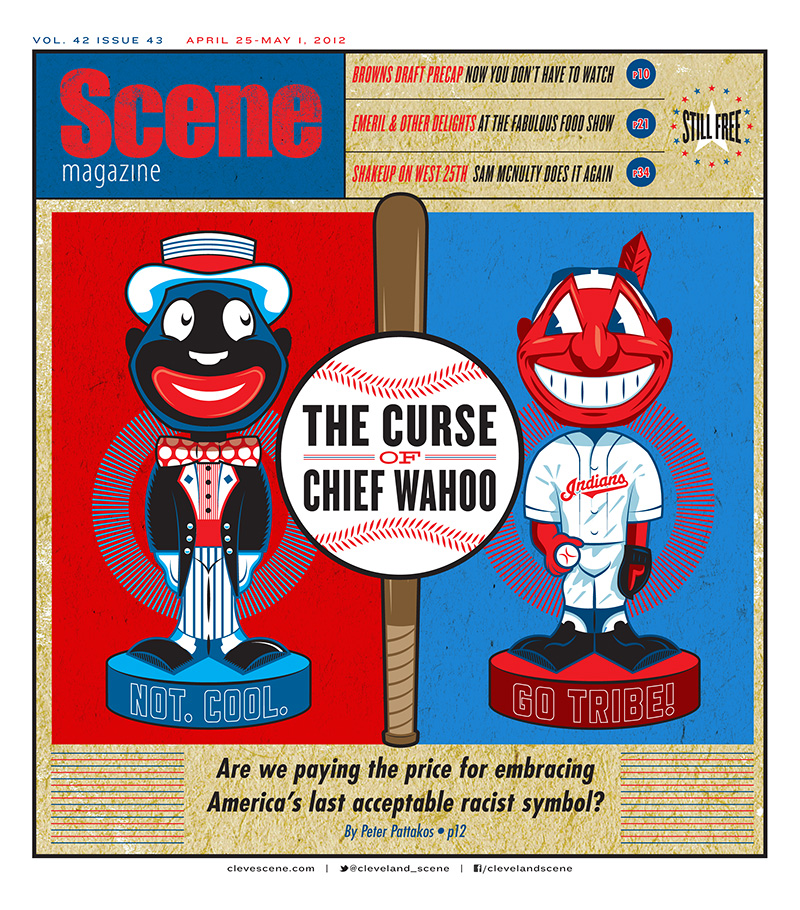Maybe someone in a position to do something about it should have seen it coming: A man who embraced a role as a radical civil rights activist*; who served four months in jail (including a two week hunger strike) instead of accepting community service and probation in exchange for a guilty plea on vandalism charges; who once defended Maurice Clarett against a “plantation mentality” and “slave master” athletic director Andy Geiger at Ohio State, and blamed Cleveland fans for their treatment of LeBron after a shocking playoff fall. Maybe someone upstairs would have thought to treat Jim Brown with more respect for the Legend’s past.
Maybe the Browns figured that a $100,000 salary for a “figurehead” position was kid gloves treatment, but it’s hard not to think that a little more respect for what Jim Brown stands for would have led to a better story than the one that’s unfolded here.
Mike,
I would hope that you would take the time to read my agreement with the Clevelend Browns. I had no contract, but I was asked to write a job description so that my duties would be clear.
That job description included two things that I think are important. As Executive Advisor to the owner, my job was to use my intelligence, and my logic to advise Mr. Lerner. The second most important thing to me was a clause in that agreement that stated that I answered to noone except Randy Lerner. These two thing were highly important to me because I truly believed, with my educational background, having been a Cleveland Brown for 9 yrs, and having a pretty good knowledge of football, that I could contibute in a valuable way to the organization.
When you called me for a meeting in your office, there was no conversation about that agreement, no conversation about my duties, no conversation about what I felt, no conversation about my relationship with the players, no conversation about my relationship with the coaches, no conversation about my relationship with the head coach, and no conversation about my community work. Ultimately there was no conversation about anything that I felt was related to my job.
Your ultimatum to me was that you would offer me the opportunity of being that of the greeter, that of a mascot, that of a person that would represent special events by his physical presence, and for those things, I would receive a salary of $100,000. All of those things that you offered me would be controlled by you. . . .
I was able to study your press conference and found your statements to be consistent in the way that you value me, and I observed the comments of the key players that sat by your side, and here was the impression I got: Your most powerful statemnt about me was that, and I must laugh, one monkey don’t stop the show. . .
But in my conclusion, I’ve never danced in the end zone, I always gave the ball to the referee, so you should know I don’t dance. Also Mike, I don’t hang out on the Westside of town. I’m an Eastside guy. I play my golf at Highland Golf Course. I don’t go to the Hall of Fame ceremonies, except on occasions, like when Gene Hickerson was inducted, and I felt very proud to be with Bobby Mitchell and Leroy Kelly in showing our respect for his great contribution, and for helping us become great players. I don’t have any trophies in my home on display. I don’t claim to be the best at anything, and I emphatically do not need validation from any man, so I will not participate in your Ring of Honor. . . .
Mike, there’s only one thing that I control in life, and that’s being a man. So let me end with a little humor, because as you say, one monkey don’t stop the show, and as I say “Willie Lynch missed a few of us”, and there will be no Buck Dancing.
From #32
Monique Brown
This looks a lot like a letter that a radical civil rights activist would write. One reaction is to criticize Brown for “injecting racial undertones” into the matter; for “conjuring injustices out of thin air.” Another is to understand that Brown basically is a racial undertone.
Growing up and playing an entire NFL career under Jim Crow had to be bad enough, but being one of the most high profile black men in the United States had to have subjected Brown to as much base hatred as any one man who lived in this country at the same time. It’s a lot more than just having been paid so little for being the all-time greatest player of the America’s most popular sport. It’s fine for Terry Pluto to point out that Paul Warfield is black too (and he’s showing up for the ceremony), but Warfield’s NFL career happened entirely after the Civil Rights Act became law.
Having come up in the world when he did, it’s easy enough to understand why the most important thing about Brown’s position with the franchise was that his duties called for him to “use [his] intelligence, and [his] logic to advise Mr. Lerner;” It’s easy enough to understand why that would have eased so much of Brown’s understandable frustration.
So since we have to assume the money isn’t that important to Brown if he’s turning down a $100,000 annual salary to show up at banquets, why did his duties have to change at all? Where’s the harm in Holmgren running the football operations with Brown keeping Randy Lerner’s ear?
Did the new regime fear Brown’s influence in the locker room, like with plantation/slave master talk? Maybe this perspective would be understandable enough with the help of a yearly discussion or at least a mandatory presentation to all new Browns on what he went through. Why shouldn’t it be easy enough for the Browns family to see Brown as an understandably, justifiably and heroically cranky grandpa?
Hard to see that the Browns family is better off without him. Hard to be surprised that Lerner and Holmgren couldn’t see this to a better ending.
———-
*”You have to realize, in the civil rights movement, there had to be radicals and peacemakers,” Brown once said. “[R]adicals like Malcolm X and peacemakers like Martin Luther King. At Syracuse, I was the radical and Ernie [Davis, the first African-American to win the Heisman Trophy] was the peacemaker, the guy everyone loved. But you needed both of us to make real changes.”



